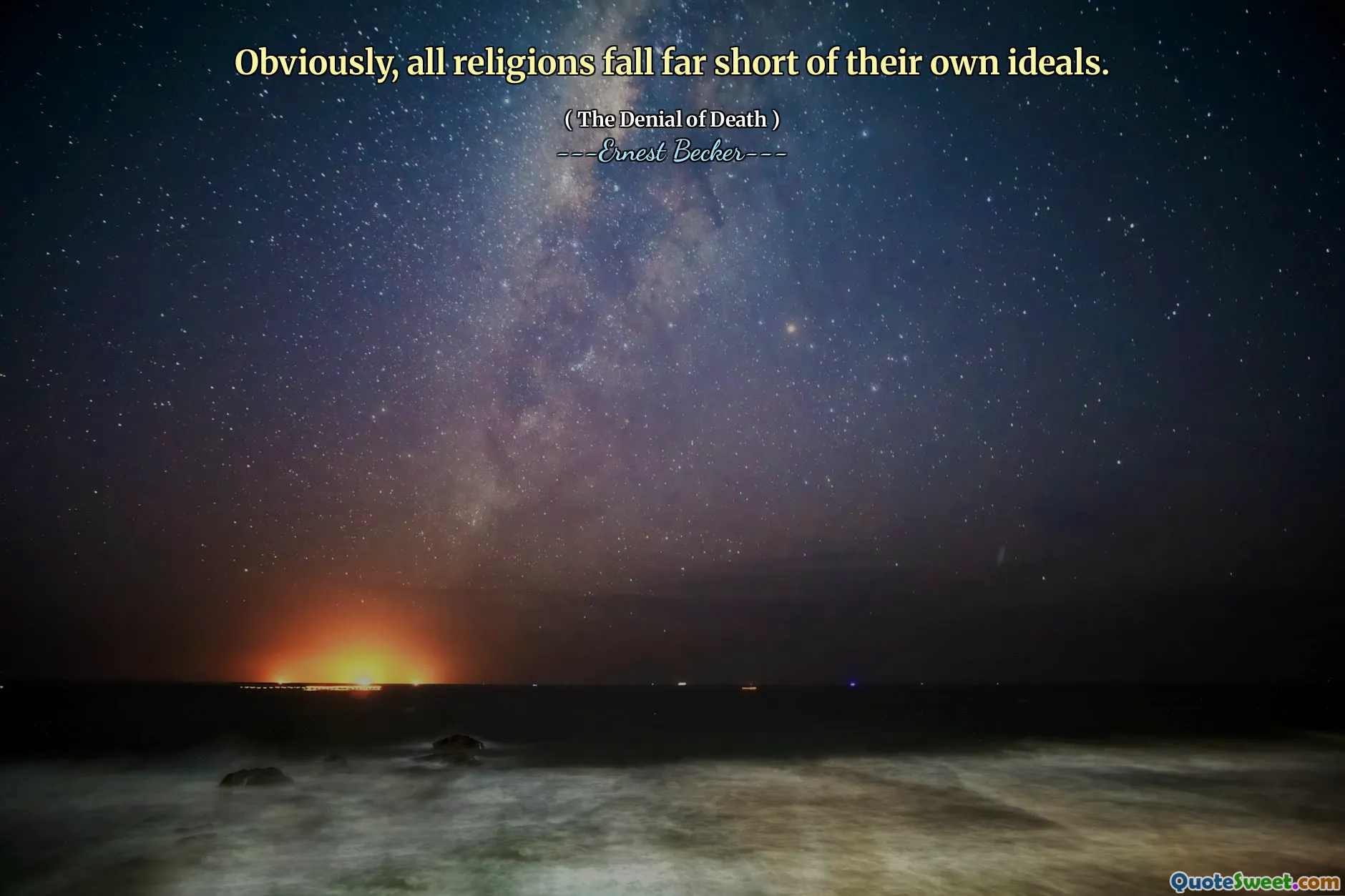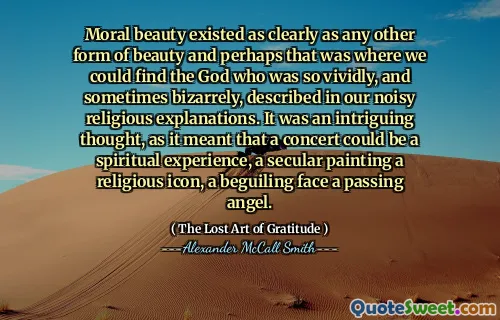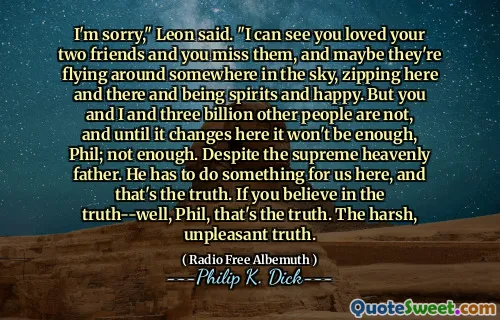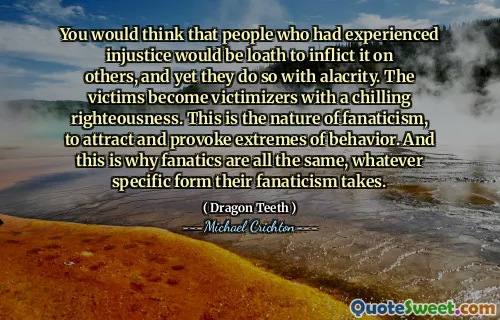
Obviously, all religions fall far short of their own ideals.
Religions, despite their profound influence on human history, culture, and individual lives, often embody ideals of compassion, justice, and moral integrity. Yet, as Ernest Becker explores in 'The Denial of Death', the human capacity for contradiction means these lofty aspirations frequently remain unfulfilled in practice. This discrepancy highlights a fundamental aspect of human nature: our perpetual struggle to align our actions with our highest values. For many, religion functions as a moral compass and a source of hope; nevertheless, institutions and adherents alike are subject to the flaws and fallibility inherent in humanity. Historical and contemporary events reveal instances where religious institutions have fallen into corruption, violence, and dogmatism, directly contrasting their spiritual ideals. Such hypocrisy and failure do not undermine the significance of faith but remind us of the challenging human condition—our tendency to aspire toward morality and transcendence while being imperfectly human. Recognizing this gap encourages humility, critical reflection, and, ultimately, a more authentic engagement with one's beliefs. It also prompts a deeper investigation into the reasons religious failings occur—be they power struggles, fear, prejudice, or misinterpretation—and how individuals and communities can strive for sincerity in practice. Embracing the imperfections within religious systems does not diminish their value; instead, it humanizes them, allowing us to approach faith with both reverence and realistic expectations. In this way, acknowledging our shortcomings can lead to personal growth and spiritual resilience, emphasizing humility over dogmatism and fostering a more genuine pursuit of moral ideals.






